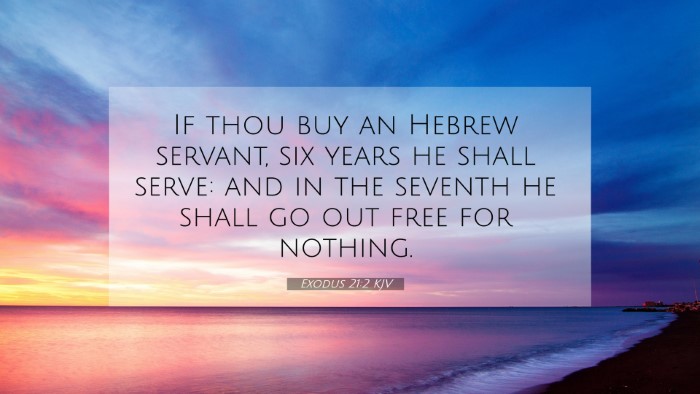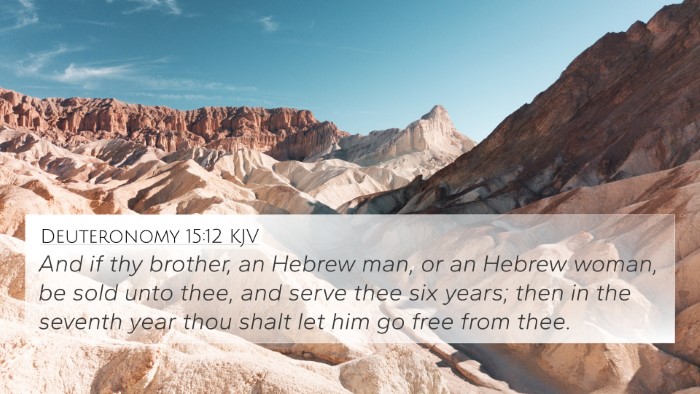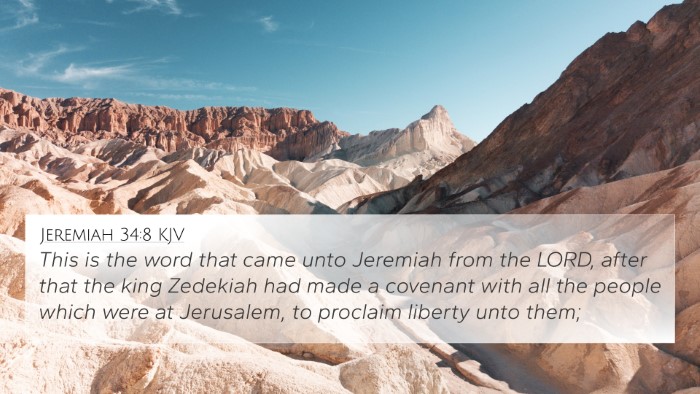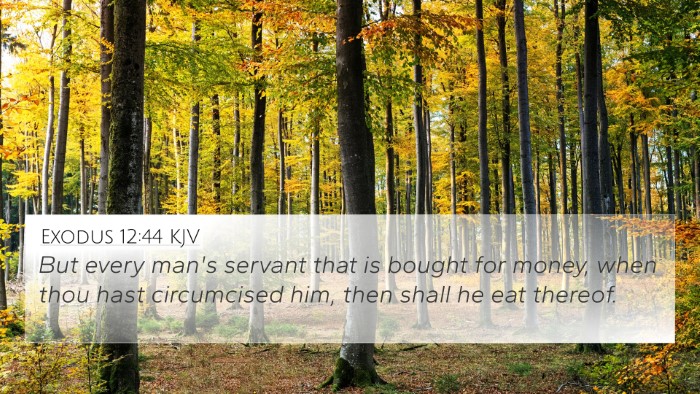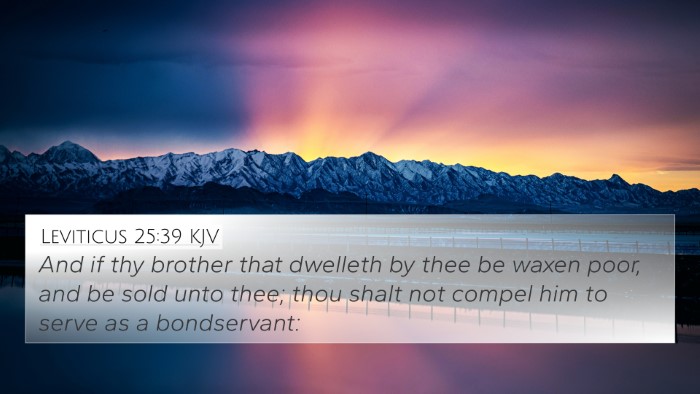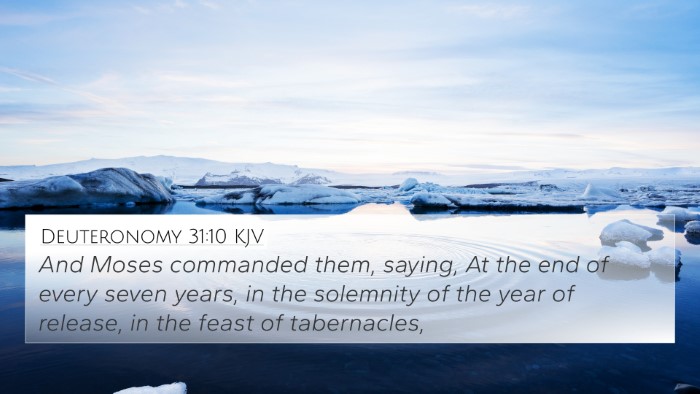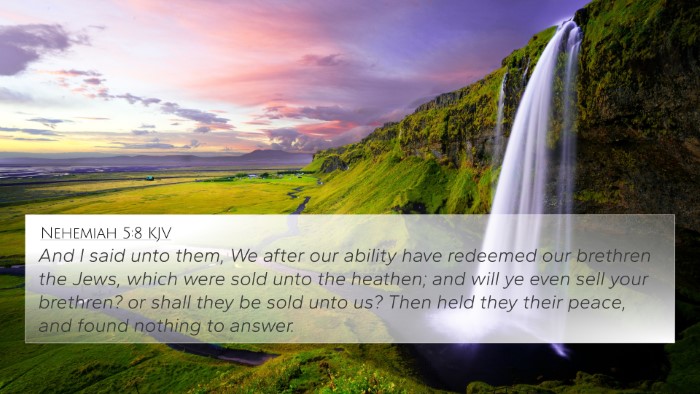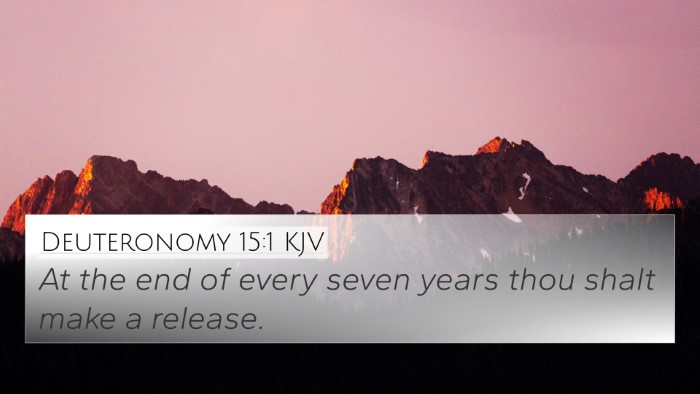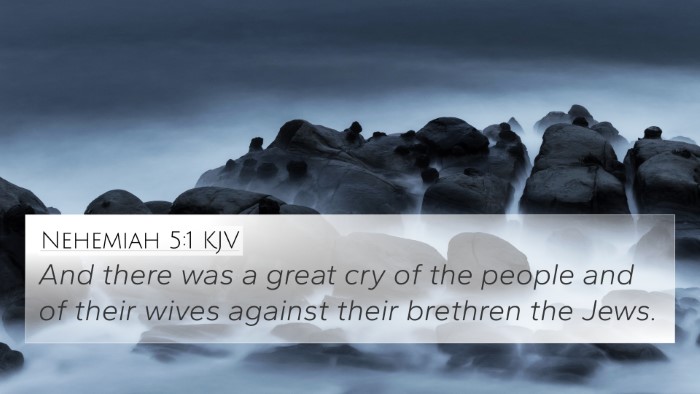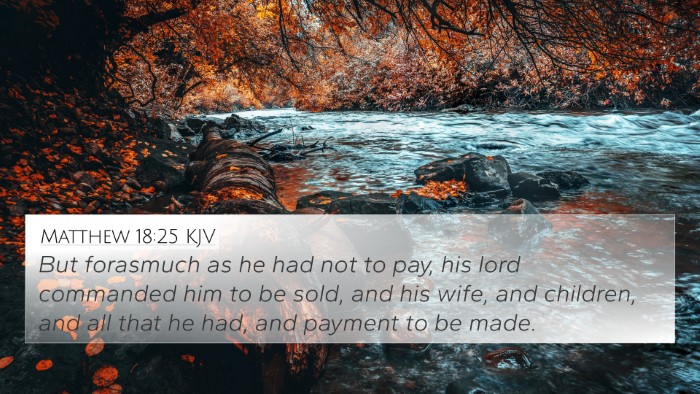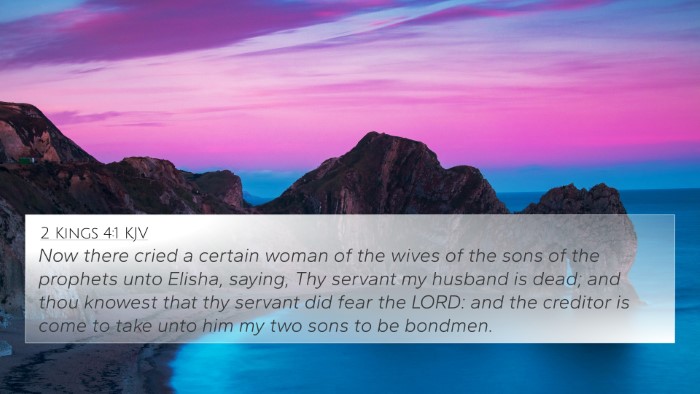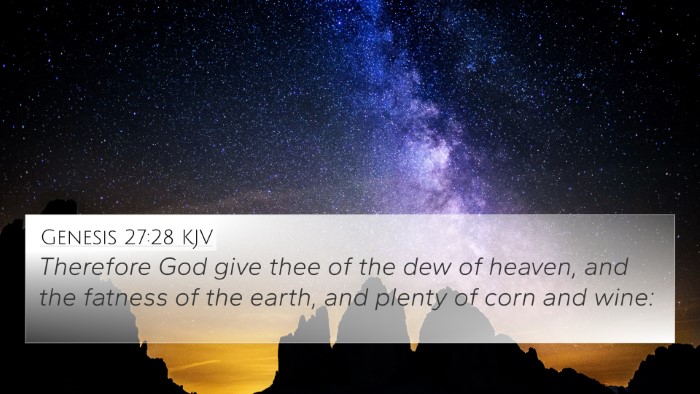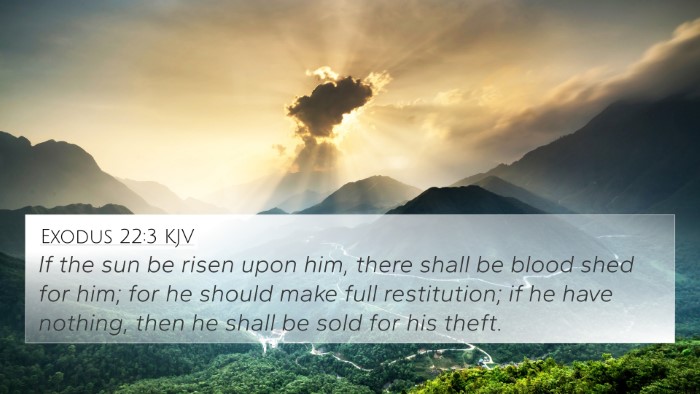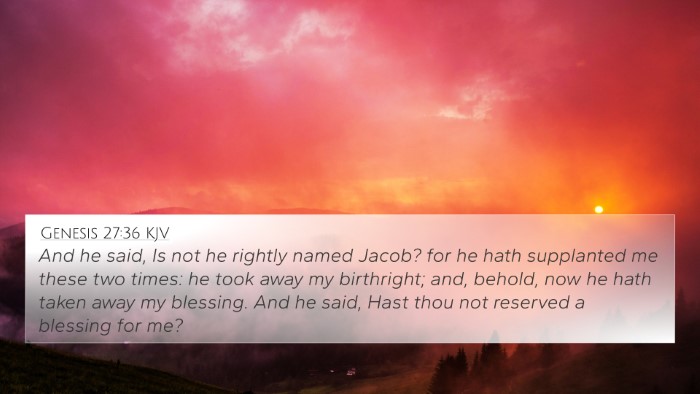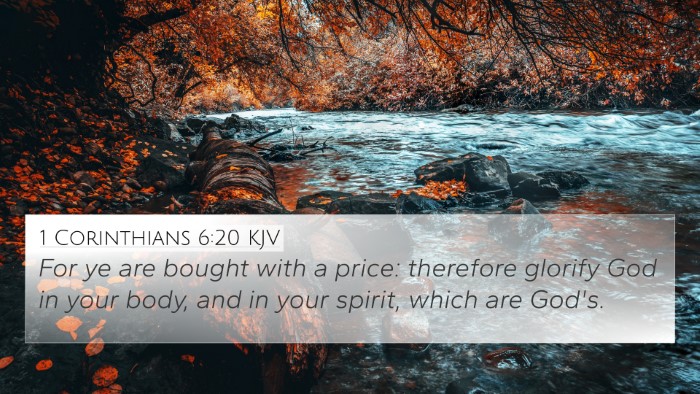Understanding Exodus 21:2
The verse Exodus 21:2 states: "If you buy a Hebrew servant, he shall serve six years; and in the seventh he shall go out free, for nothing." This passage is part of the Mosaic Law and addresses the treatment and conditions of servitude in ancient Israel.
Overview and Context
Exodus 21 provides laws regarding personal injuries, property damages, and social justice. Within this, Exodus 21:2 specifically rules regarding Hebrew servants. This law aimed to prevent the exploitation of individuals while promoting fairness and compassion in societal structures.
Commentary Insights
- Matthew Henry: Henry emphasizes the humane aspect of this law, pointing out that it was designed to ensure that the servitude of the Hebrews was limited and intended to protect their dignity. He elaborates on the significance of the seventh year—representing a divine principle of rest and liberation, which serves as a reminder of God's deliverance of Israel from slavery in Egypt.
- Albert Barnes: Barnes focuses on the necessary regulation of servitude to ensure that slaves in Israel were treated with respect and were provided opportunities to reclaim their freedom. He notes that this law was established to prevent permanent servitude and emphasizes God's justice throughout this legislation. The concept of servitude, in this context, reflected socioeconomic conditions more than chattel slavery.
- Adam Clarke: Clarke provides a detailed analysis of the term "Hebrew servant," distinguishing it from other forms of slavery. He explains that the Hebrew's servitude was often voluntary due to debt, and the laws were merciful in nature, aligning with God's overarching theme of compassion and grace. Clarke highlights how this provision created a system of hope and potential for restoration.
Bible Verse Cross-References
Exodus 21:2 connects with several other biblical texts that explore themes of servanthood, justice, and freedom:
- Deuteronomy 15:12-15: This passage reinforces the idea of releasing Hebrew slaves after six years and reminds the people of their own deliverance from slavery.
- Leviticus 25:39-40: These verses discuss the treatment of fellow Israelites who became servants due to financial hardship, urging kindness and maintaining their integrity.
- Isaiah 58:6: This verse critiques false religious practices and emphasizes the liberation of the oppressed, echoing the theme of freedom from servitude.
- Matthew 20:26-28: In the New Testament, Jesus teaches that greatness in His kingdom is marked by servanthood, linking back to the ethical treatment and status of servants envisioned in the Old Testament.
- 1 Corinthians 7:21-23: Paul addresses the condition of bondservants, suggesting they should serve faithfully while emphasizing their ultimate freedom in Christ.
- Galatians 5:1: This verse encourages believers to stand firm in their freedom, signaling that Christ has liberated them from the bondage of sin, paralleling the freedom given to servants.
- James 1:25: The law of liberty is presented, urging Christians to live with the implications of their freedom, including how they treat others.
Thematic Bible Verse Connections
Exodus 21:2 serves as a significant verse reflecting the morality embedded in the law. The ideas of servitude, care for one's fellow human, and structured justice exposed in this verse are echoed throughout both the Old and New Testaments.
Exploring Cross-References
- Tools for Bible cross-referencing: The mentioned verses correlate with Exodus 21:2 and illuminate the broader biblical narrative surrounding servitude and freedom.
- Bible concordance: These texts can be explored through various Bible study methods to gain comprehensive insights into servanthood.
- Cross-reference Bible study: By linking scriptures such as Exodus 21:2 with Deuteronomy 15:12-15, a deeper understanding of biblical ethics is unveiled.
- Identifying connections between Old and New Testament: The continuity of themes related to servanthood from Exodus through to Galatians highlights God's unchanging principles.
- Bible verses related to social justice: Each verse underlines God's commitment to justice and the fair treatment of those in servitude.
Conclusion
Exodus 21:2 presents a foundational principle in the treatment of servants, representing God’s desire for justice and empathy. As Christians reflect on this verse and its cross-references, it underscores the importance of freedom and humane treatment, both in the context of ancient Israel and in contemporary Christian practice.


